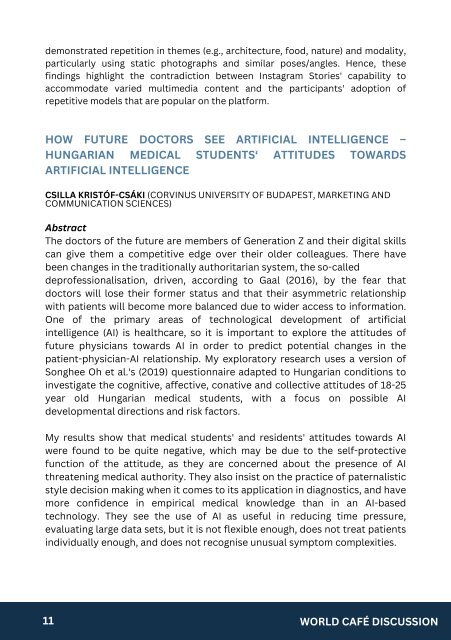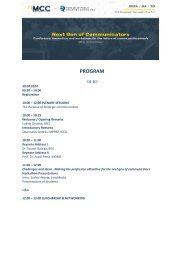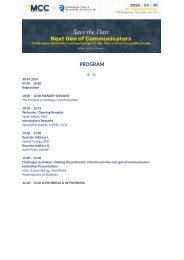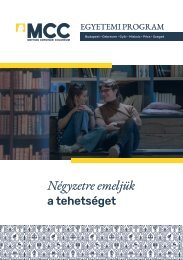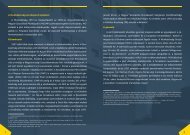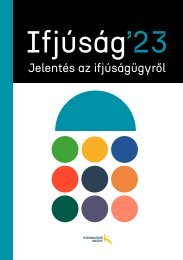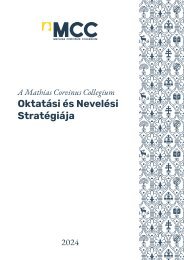Clout Culture - Youth Cultures in Changing Societes Conference
You also want an ePaper? Increase the reach of your titles
YUMPU automatically turns print PDFs into web optimized ePapers that Google loves.
demonstrated repetition <strong>in</strong> themes (e.g., architecture, food, nature) and modality,<br />
particularly us<strong>in</strong>g static photographs and similar poses/angles. Hence, these<br />
f<strong>in</strong>d<strong>in</strong>gs highlight the contradiction between Instagram Stories' capability to<br />
accommodate varied multimedia content and the participants' adoption of<br />
repetitive models that are popular on the platform.<br />
HOW FUTURE DOCTORS SEE ARTIFICIAL INTELLIGENCE –<br />
HUNGARIAN MEDICAL STUDENTS‘ ATTITUDES TOWARDS<br />
ARTIFICIAL INTELLIGENCE<br />
CSILLA KRISTÓF-CSÁKI (CORVINUS UNIVERSITY OF BUDAPEST, MARKETING AND<br />
COMMUNICATION SCIENCES)<br />
Abstract<br />
The doctors of the future are members of Generation Z and their digital skills<br />
can give them a competitive edge over their older colleagues. There have<br />
been changes <strong>in</strong> the traditionally authoritarian system, the so-called<br />
deprofessionalisation, driven, accord<strong>in</strong>g to Gaal (2016), by the fear that<br />
doctors will lose their former status and that their asymmetric relationship<br />
with patients will become more balanced due to wider access to <strong>in</strong>formation.<br />
One of the primary areas of technological development of artificial<br />
<strong>in</strong>telligence (AI) is healthcare, so it is important to explore the attitudes of<br />
future physicians towards AI <strong>in</strong> order to predict potential changes <strong>in</strong> the<br />
patient-physician-AI relationship. My exploratory research uses a version of<br />
Songhee Oh et al.'s (2019) questionnaire adapted to Hungarian conditions to<br />
<strong>in</strong>vestigate the cognitive, affective, conative and collective attitudes of 18-25<br />
year old Hungarian medical students, with a focus on possible AI<br />
developmental directions and risk factors.<br />
My results show that medical students' and residents' attitudes towards AI<br />
were found to be quite negative, which may be due to the self-protective<br />
function of the attitude, as they are concerned about the presence of AI<br />
threaten<strong>in</strong>g medical authority. They also <strong>in</strong>sist on the practice of paternalistic<br />
style decision mak<strong>in</strong>g when it comes to its application <strong>in</strong> diagnostics, and have<br />
more confidence <strong>in</strong> empirical medical knowledge than <strong>in</strong> an AI-based<br />
technology. They see the use of AI as useful <strong>in</strong> reduc<strong>in</strong>g time pressure,<br />
evaluat<strong>in</strong>g large data sets, but it is not flexible enough, does not treat patients<br />
<strong>in</strong>dividually enough, and does not recognise unusual symptom complexities.<br />
11<br />
WORLD CAFÉ DISCUSSION


